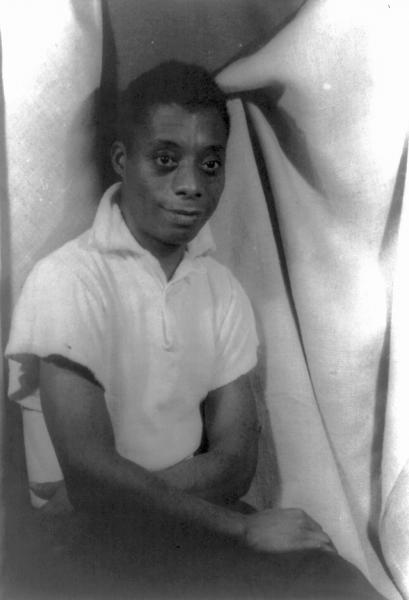
Baldwin died of cancer in 1987. (Wikimedia Commons)
“There are no natural truths. He really helped us see how racism parades as simple logic and common sense when in fact it’s a construct.”
James Baldwin’s legacy of challenging long established truths and systemic structures is what inspired Associate Professor of English at Ohio State University Koritha Mitchell to teach a course dedicated to the late author.
Mitchell’s goal for the class was to encourage her students to “call out racism and other -isms” in a society that promotes colorblindness and ignoring racial inequalities.
Increasingly, in the age of social media and online communication, people are using social media as a tool to challenge those beliefs.
After a grand jury failed to indict Officer Darren Wilson for the shooting death of 19-year-old Michael Brown in Ferguson, Mo., groups took to Twitter to protest the ruling; a demonstration that also showed how Baldwin’s words transcend time by remaining as relevant in 2014 as they were in 1963.
SEE ALSO: L.A. Reaction To Ferguson Grand Jury Decision
“Having a courageous voice is crucial in the age of Obama,” said Mitchell.
Nigel Westmaas, Associate Professor of Africana Studies at Hamilton College, emphasized that using Baldwin’s work on social media proves the civil rights struggle is ongoing.
“Yes, there’s been progress since 1964. There’s no signs saying ‘colored only,’ there’s no more ‘white only’ restrooms… [But] you hear the same pejorative words to describe black men,” said Westmaas referring to Wilson’s description of Brown as a “
demon.”
Westmaas also urges people to not view Ferguson “as just an aberration.”
“There’s an umbilical cord connection between the present and the past,” said Westmaas. “If you don’t see the connection, you won’t understand Trayvon Martin or Michael Brown.”
Fadumo Osman is a freshman Computer Science major at NYU.
She tweeted one of Baldwin’s quotes because of how he unapologetically discussed race and how his “words rang true as if it were somebody who said [something] in response to Ferguson.” Osman added, “His quotes embody the anger that is still felt decades later.”
Paul Thomas, an Associate Professor of Education at Furman University, also tweeted quotes from Baldwin. He uses the platform to engage in ongoing conversations with others about social issues.
Twitter becomes a space to discuss systemic issues of racism “as we have these tragedies when we’re losing young black males,” said Thomas. He also appreciates having the chance to go back to in-depth conversations over an extended period of time.
Thomas and a colleague recently released a
book on Baldwin after being drawn to the author through his essays and
interviews. Baldwin’s critique of American society included an inability to discuss racism and recognize white privilege.
“There’s almost a cultural politeness that keeps people from admitting it, even when you show them the data,” said Thomas.
Nonetheless, Twitter and other social media sites seem to be a part of a resurgence of Baldwin’s work.
“There seems to be a renaissance surrounding Baldwin and his work. More people are citing him and [there’s] more recognition of him as a public intellectual.”
Reach Staff Reporter Jessica Moulite here. Follow her on Twitter.





